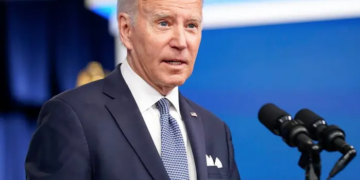The University System of Georgia’s Board of Regents has unanimously called on two collegiate sports governing bodies to prohibit transgender women from competing in women’s athletics. The vote, held on Tuesday, reflects growing debate over the inclusion of transgender athletes in competitive sports across the state.
The resolution comes two years after the Georgia High School Association (GHSA) required students to participate in high school sports according to their gender assigned at birth. It also aligns with rules from the National Association of Intercollegiate Athletics (NAIA), which already excludes transgender women from women’s competitions.
The controversy gained attention during the 2022 NCAA Swimming and Diving Championships at Georgia Tech, where Lia Thomas, a swimmer from the University of Pennsylvania, won the 500-meter freestyle after transitioning through hormone therapy. Her participation prompted widespread debate about fairness in competition.
Five former collegiate swimmers, who had competed in that event, testified before a Georgia Senate committee in August. They expressed concerns over fairness and discomfort with sharing locker rooms with transgender athletes. The Board of Regents’ resolution echoes those concerns, emphasizing the possibility of unfair competition if transgender athletes, particularly those undergoing hormone therapy, compete in women’s events.
Lt. Gov. Burt Jones voiced his support following the board’s decision, commending the move as part of ongoing efforts to protect women’s sports. Jones pledged to introduce legislation in the 2025 session that would officially ban transgender women from participating in sports at public colleges across Georgia.
In 2022, the Georgia General Assembly deliberated a bill to restrict transgender athletes from competing in sports matching their gender identity, but the final decision was left to GHSA. The association’s executive committee implemented the ban later that spring. However, opponents of these measures, including Democratic legislators and advocates for transgender youth, argue that such policies foster discrimination. They also raise concerns about the mental health impacts on transgender students, who already face high rates of suicide and prejudice.
The Board of Regents’ resolution requests that the NCAA and the National Junior College Athletic Association (NJCAA) adopt similar restrictions, aligning with the NAIA’s existing policy.
As the issue continues to evolve, Georgia is poised to revisit the matter during the 2025 legislative session, with potentially broader implications for collegiate sports statewide.




























Men under any circumstances should not be allowed in women’s sports.